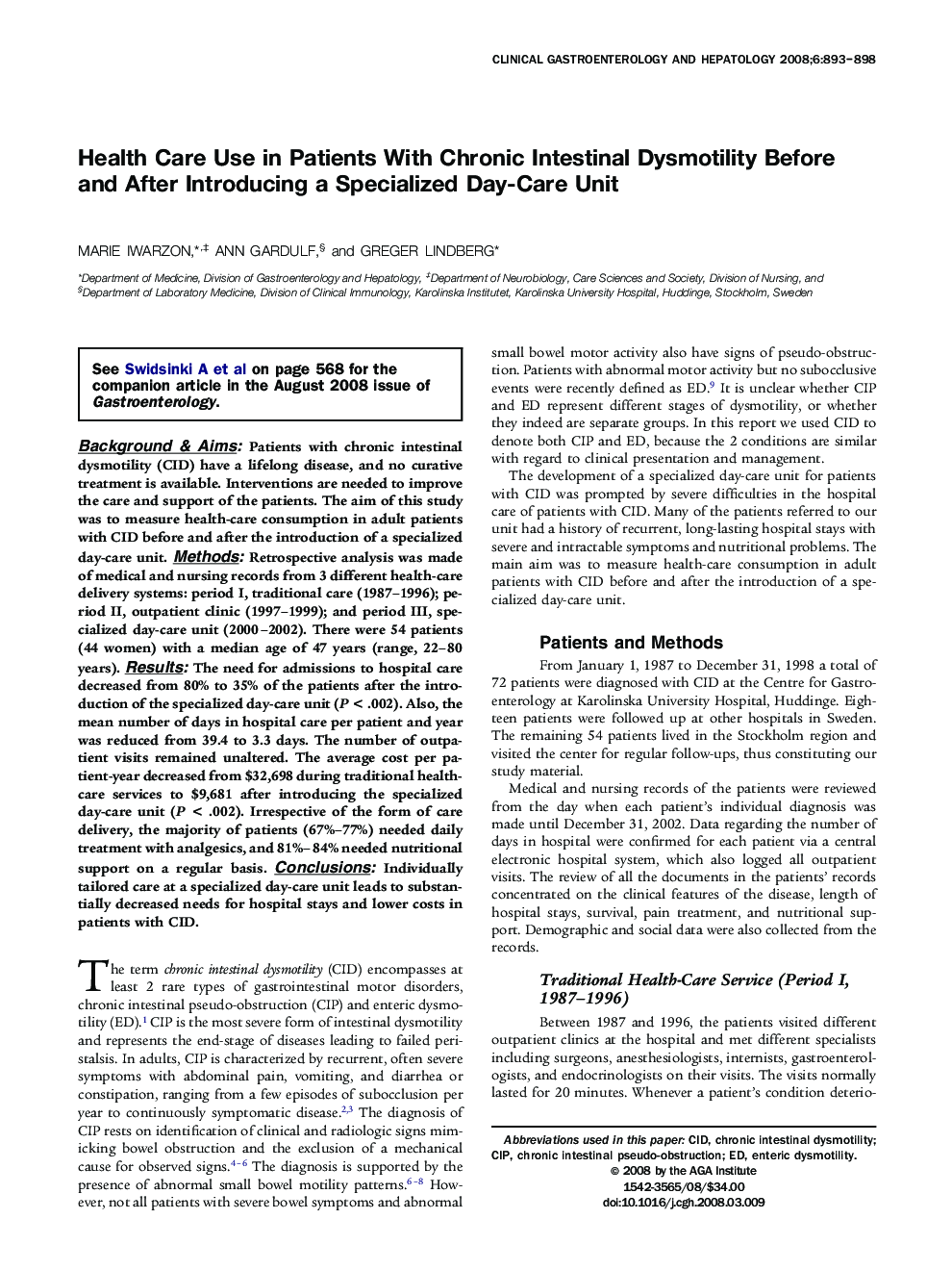| Article ID | Journal | Published Year | Pages | File Type |
|---|---|---|---|---|
| 3285544 | Clinical Gastroenterology and Hepatology | 2008 | 6 Pages |
Abstract
Background & Aims: Patients with chronic intestinal dysmotility (CID) have a lifelong disease, and no curative treatment is available. Interventions are needed to improve the care and support of the patients. The aim of this study was to measure health-care consumption in adult patients with CID before and after the introduction of a specialized day-care unit. Methods: Retrospective analysis was made of medical and nursing records from 3 different health-care delivery systems: period I, traditional care (1987-1996); period II, outpatient clinic (1997-1999); and period III, specialized day-care unit (2000-2002). There were 54 patients (44 women) with a median age of 47 years (range, 22-80 years). Results: The need for admissions to hospital care decreased from 80% to 35% of the patients after the introduction of the specialized day-care unit (P < .002). Also, the mean number of days in hospital care per patient and year was reduced from 39.4 to 3.3 days. The number of outpatient visits remained unaltered. The average cost per patient-year decreased from $32,698 during traditional health-care services to $9,681 after introducing the specialized day-care unit (P < .002). Irrespective of the form of care delivery, the majority of patients (67%-77%) needed daily treatment with analgesics, and 81%-84% needed nutritional support on a regular basis. Conclusions: Individually tailored care at a specialized day-care unit leads to substantially decreased needs for hospital stays and lower costs in patients with CID.
Related Topics
Health Sciences
Medicine and Dentistry
Gastroenterology
Authors
Marie Iwarzon, Ann Gardulf, Greger Lindberg,
